The last leg of my Seattle book tour, along with Emmy Award-winning filmmaker Marissa Aroy, was in Yakima Valley. Our tour was sponsored by numerous generous organizations, including Pinoy Words Expressed Kultura Arts (KWEKA), Alaskero Foundation, El Centro de la Raza, the Meaningful Movies Project, Filipino American Students Association (FASA) of the University of Washington, 4 Culture, Office of Arts & Culture (Seattle), Filipino American Community of Greater Yakima Valley, Imperial Gardens, Filipino American National Historical Society (FANHS) Chapter 26, and the FANHS National Office.
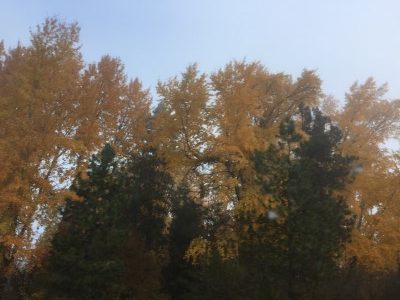
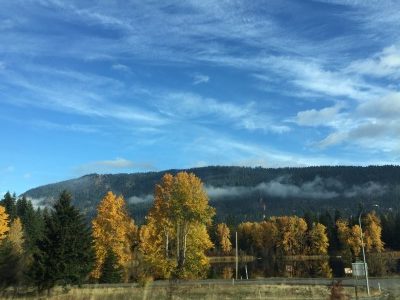
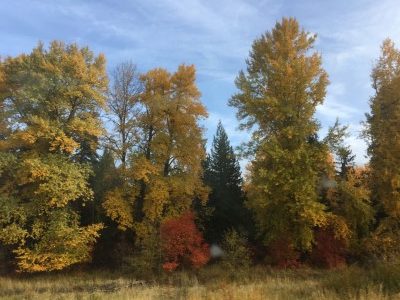
Maria Batayola served as our wonderful host for our book tour. She showed me a side of Seattle I had never seen (see my two previous news posts “Seattle book tour in review: Parts 1 and 2”), and for that, I am deeply grateful. On Saturday morning, October 22nd, my good friend John, who, along with his partner Kris, had welcomed me into their home for my stay in Seattle, dropped me off in Factoria, Wash., where I met up with Maria and Marissa, and away we drove to eastern Washington.

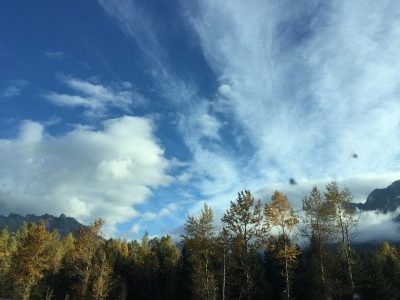
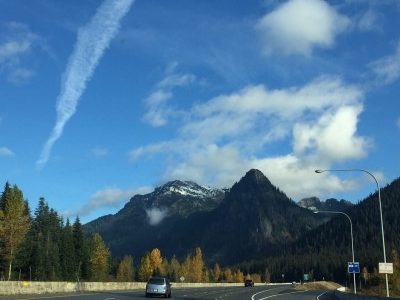
I’ve visited Seattle a number of times, but I’ve never been to the eastern part of the state. I had read David Guterson’s 1999 novel, East of the Mountains, and understood that where Seattle was lush, the eastern part of the state was arid. However, I was also told that the region would remind me of California’s Central Valley because it was rural farming land dotted with small communities.
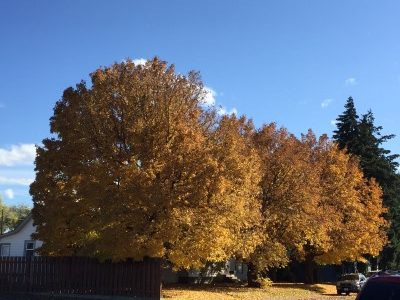
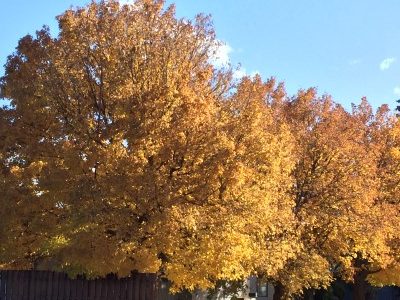
The drive took some two and a half hours. Along the way, we saw some amazing landscape – clear streams meandering through different varieties of trees in spectacular gold, orange, and red. Bodies of water were low enough to reveal stumps of trees. And then we entered vast farmlands and signs for Honeycrisp apples. While Yakima Valley is the bread basket for numerous fruits and vegetables, the region is well known for its apples. Eastern Washington is home to more than 175,000 acres of apple orchards, with Yakima Valley being the largest apple-producing region in the state.
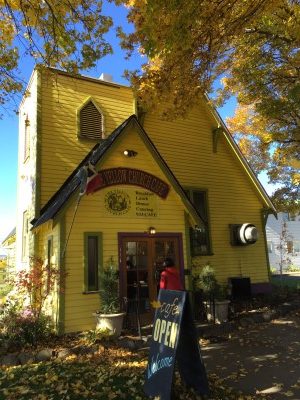
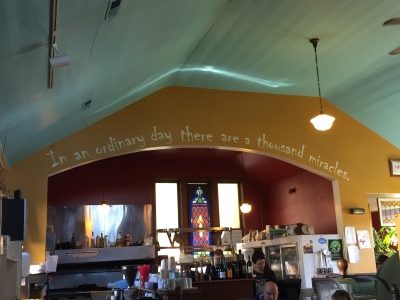
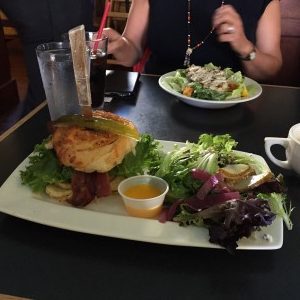
We stopped for lunch at this charming and popular restaurant called The Yellow Church Cafe (111 S. Pearl Street, Ellensburg, Wash. 98926, 509.933.2233), which, as you can guess, is a converted church. The food is heavenly, no pun intended. Whenever a BLT appears on the menu, that’s what I order. What was special about this BLT is that it made with their special bread, which tastes like a fluffy asiago cheese bagel, and instead of the tired mayonnaise, it had an aioli sauce. The chai latte was not overly sweet. The place was hopping. Afterwards, we wandered over to a brightly decorated house a few blocks down inhabited by happy artists. Ellensburg proved to be a quaint and beautiful town.
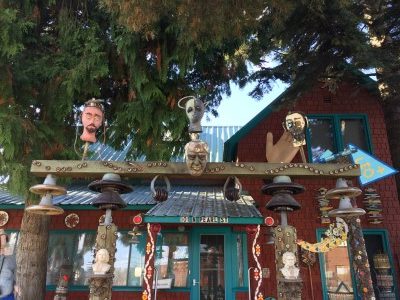
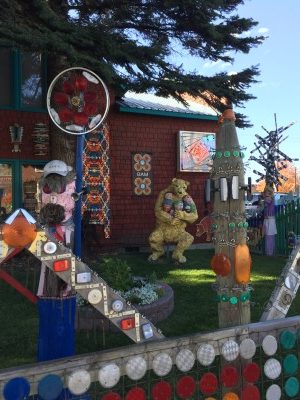
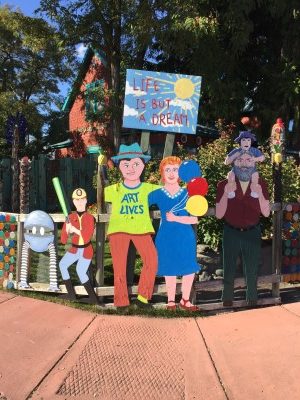
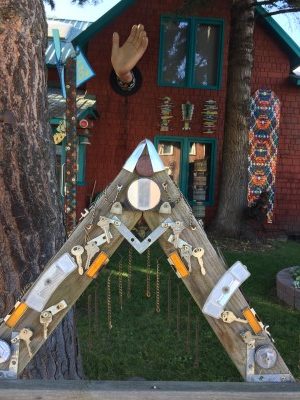
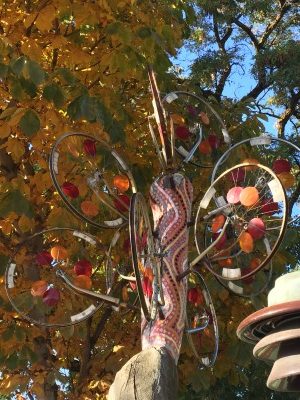
When we arrived in the town of Wapato, we were first met by Kuya Ray Pasqua, president of the Filipino American Community of Yakima Valley (FACYV). Kuya Ray is a leader in the community, but he also worked with Filipino American labor leader Larry Itliong during the years of the Delano Grape Strike and the United Farm Workers Union. It was an honor to meet him and to hear his stories of those difficult but very important times. FACYV’s Filipino Hall in Wapato, Wash., is the first Filipino Hall built in the United States. FACYV was preparing for its 60th anniversary the following evening, which is a big event that was anticipated to feed some 600 members of the community. It was too bad that Marissa and I would be leaving for home the following morning.
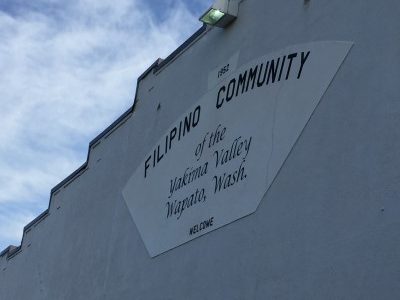
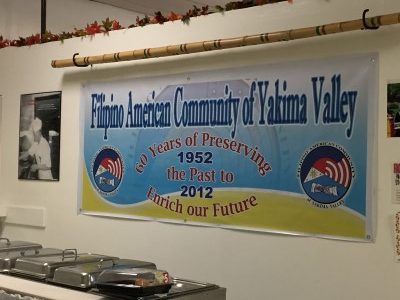
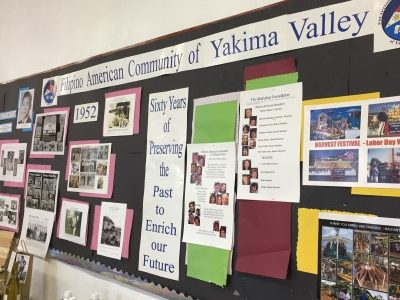
The Saturday evening event comprised a short reading from my novel, the screening of Marissa’s documentary, Delano Manongs: The Forgotten Heroes of the United Farm Workers Movement, and a panel discussion with Kuya Ray, Marissa, Maria and me, moderated by local reporter Ryan Yadao. Although attendance was light, the community members who showed up were very engaged in the subject and some had been involved in the farm labor movement, which was great to learn about and to meet them after the event. I can’t say it enough: It was an honor for me to hear of their sacrifices in the fields and across the country in the name of social justice for farm workers.
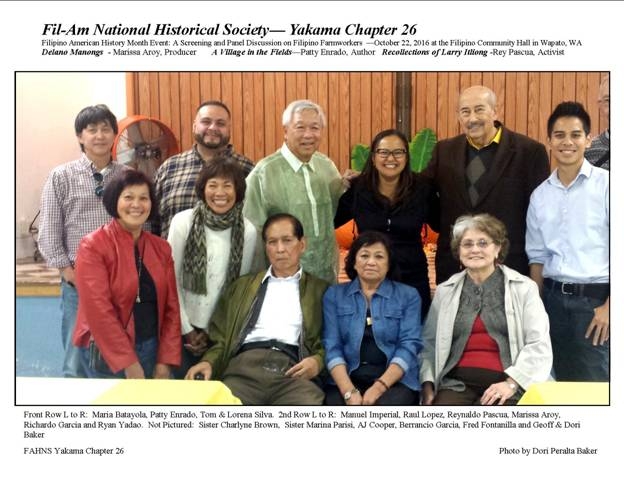
After the Q&A and book and DVD signing, we were invited to the home of FACYV members Fred Fontanilla, who is a retired chemist, and Bob Plummer, retired professor at Heritage University, for a wonderful dinner, which included great conversation among the 12 of us. And then FANHS Chapter 26 members Dori Peralta Baker and her husband Geoff Baker hosted us for the night. In the morning, we were treated to gorgeous views of Yakima Valley. Dori related the activity of casually counting the bald eagles and salmon in the streams, and how the hills are covered in snow in the wintertime. Dori had put together a display of local Filipino Americans who served in the Vietnam War. She told us the sobering news that Yakima Valley bearing the burden of being the region in the country with the most soldiers of color who fought in the Vietnam War. I should not be surprised, but I was still shocked by the fact that the high school counselors advised the Native American, Filipino American, and Mexican American boys to join the armed forces and serve in Vietnam War because they were not college material. I’m sure this practice was rampant across high schools in America at the time and to this day, but to have your home region bear that awful distinction is heartbreaking.

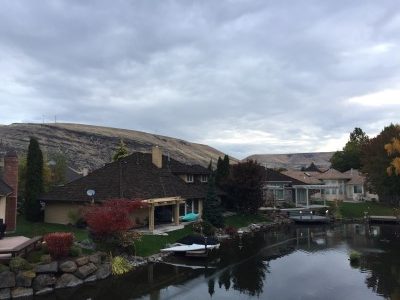
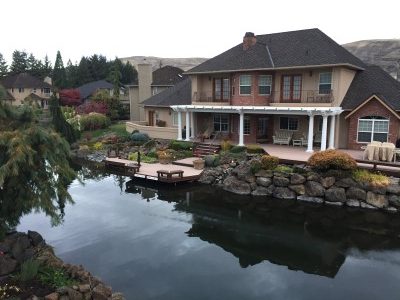
We left Yakima Valley early Sunday morning to return home. I learned so much while on this book tour and I met so many wonderful, giving people. And I saw another beautiful part of Washington State. I hope to return to Seattle and Yakima Valley in the near future – to this wonderful community that I now claim as part of my Filipino American home.
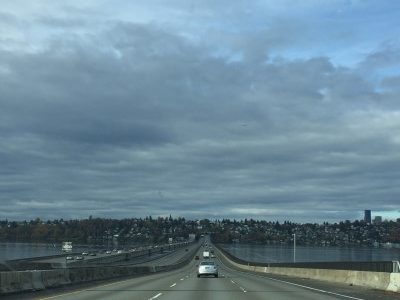
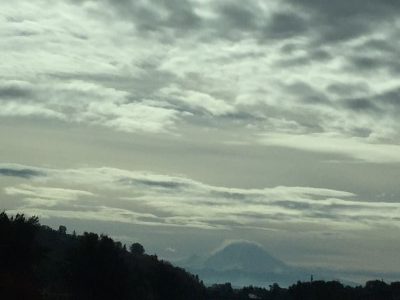

So glad you’re on book tour!!!
Thank you so much, Laurel!
Loved seeing the photos of your trip down to the Yakima Valley. Reminded me of my own drive down with my artist and film maker friend Ermena Vinluan who I just lost in August. We were at the same Filipino Community Center you were. Ermena traveled with me and her videographer for a documentary of Gene Viernes and Silme Domingo, labor leaders whose murders were proven in court to be connected to the Marcos Dictatorship.
Thank you for sharing your memories! I will have to look up that documentary. Looking forward to seeing you this afternoon!